Therapy for Kids and Teens with ADHD and Autism (AuDHD)
Helping Neurodivergent Children Understand Their Brain, Build Skills, and Thrive
If your child or teen has both ADHD and Autism (also known as AuDHD), you’ve probably noticed that traditional parenting advice, school strategies, or even therapy hasn’t been enough.
Maybe your child struggles with big emotions, meltdowns, or sensory overload. Maybe they’re bright and curious—but can’t stay on task or connect socially the way others expect. Maybe school has become a battle, or they’re starting to feel like something is “wrong” with them.
I’m Victoria Prisco, a licensed therapist, certified ADHD Specialist, special education teacher, and neurodivergent-affirming clinician. I help neurodivergent kids and teens understand their brains, build skills, and feel good about who they are.
I help neurodivergent kids and teens understand their brains, build skills, and feel good about who they are.

What Does AuDHD Look Like in Kids and Teens?
Kids with co-occurring ADHD and Autism may:
Struggle with focus, attention, or staying still (ADHD)
Experience intense emotions, frequent meltdowns, or shutdowns (both)
Get overwhelmed by sounds, textures, crowds, or transitions (Autism)
Have strong interests and routines—but difficulty with flexibility (Autism)
Interrupt often, talk a lot, or act without thinking (ADHD)
Have a hard time with social cues, friendship dynamics, or “fitting in” (Autism)
You might also see burnout, frustration with school, or confusion around identity as they get older. These challenges just mean their brain processes the world differently.
When a child or teen has both ADHD and Autism, sometimes called AuDHD, it can create a unique blend of strengths and challenges. These two neurodevelopmental conditions often overlap—but not always in the same way for every young person.
Understanding how ADHD and Autism show up together can help parents, teachers, and caregivers better support a child’s needs at home, in school, and in social situations.
🔄 What Traits Might Show Up Together?
Children and teens with ADHD and Autism may experience:
Trouble focusing or paying attention (ADHD)
Sensory overload from sounds, lights, textures, or crowded places (Autism)
Impulsivity or hyperactivity, like talking a lot or having trouble sitting still (ADHD)
Repetitive routines or strong interests in specific topics (Autism)
Struggles with social skills, like reading body language or joining group play (Autism)
Big emotions or meltdowns when routines change or tasks feel overwhelming (both)
🧠 Why Is It Sometimes Hard to Spot?
The traits of ADHD and Autism can interact in ways that make it tricky to recognize what’s really going on:
A teen may look like they’re “daydreaming,” but they’re actually overwhelmed by too much noise or movement in the classroom.
A child may seem “rigid” or “bossy” in group play, but they’re trying to manage anxiety around unpredictability or social rules they don’t fully understand.
A young person may be highly verbal and intelligent, but still struggle with transitions, friendships, or self-regulation.
🌈 Every Child with AuDHD is Unique
Some kids may show more ADHD-like behavior—being active, distracted, or always on the go. Others may lean more toward Autism traits—preferring routine, struggling with sensory input, or needing time to themselves. Many kids have a mix of both.
Just like fingerprints, every neurodivergent brain is different. What matters most is understanding how your child experiences the world and creating the support that works for them.
How I Help Neurodivergent Kids and Teens
Therapy sessions with me are designed to meet your child where they are. I don’t expect kids to sit still or “talk about their feelings” for an hour. Instead, we integrate movement, play, visuals, and games to teach emotional regulation, executive functioning, and social problem-solving in ways that stick.
Therapy includes:
🌟 Helping your child understand how their brain works (and that it’s not wrong—just different)
🔁 Practicing real-time coping skills for managing sensory overload, frustration, and transitions
💬 Building social understanding and flexible thinking through role play, story-building, or video game-based learning
📊 Collaborating with parents to create supportive routines and reduce household stress
🤝 Supporting teens in developing identity, self-advocacy, and emotional resilience
Every session is individualized based on your child’s age, needs, and capacity for engagement
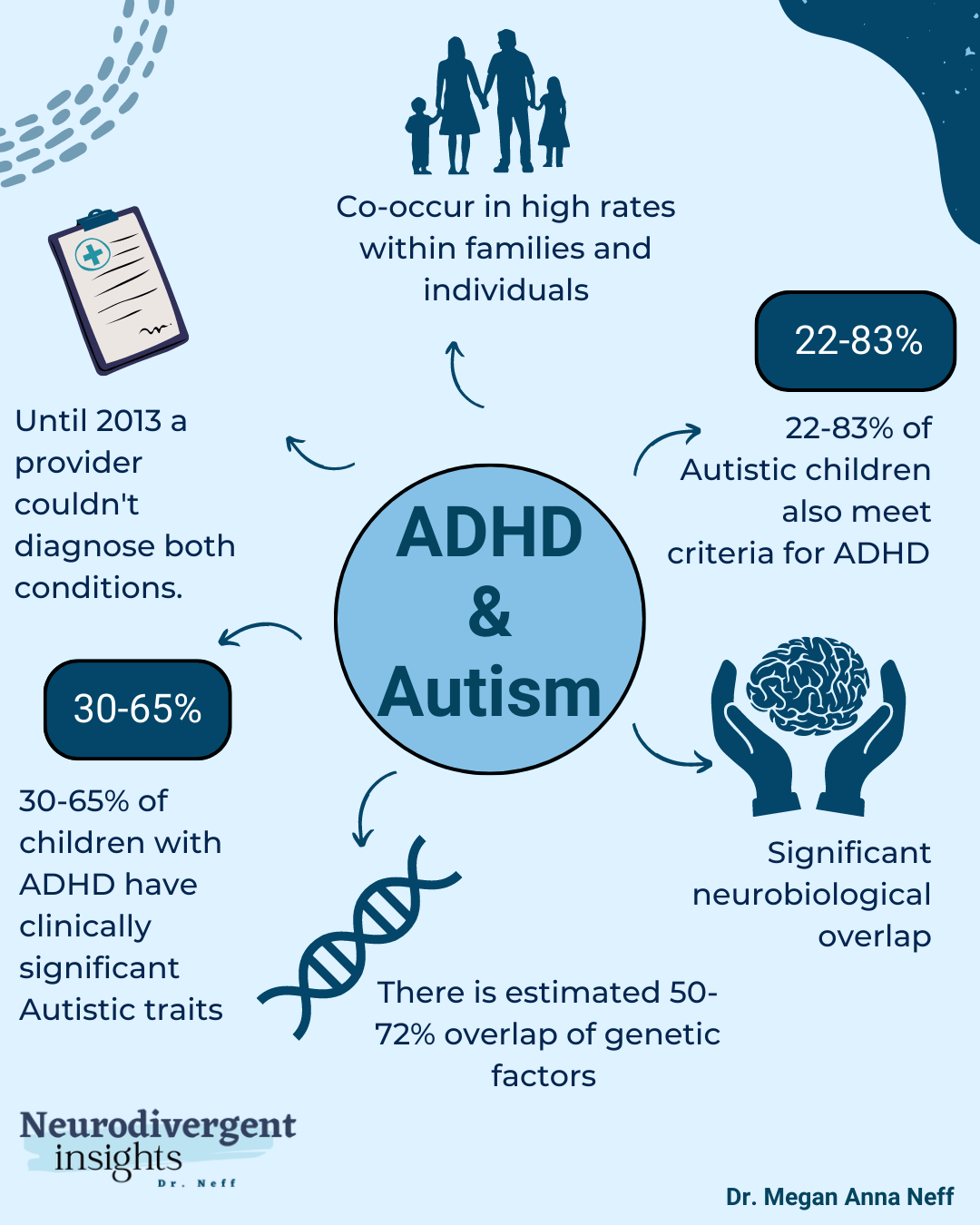
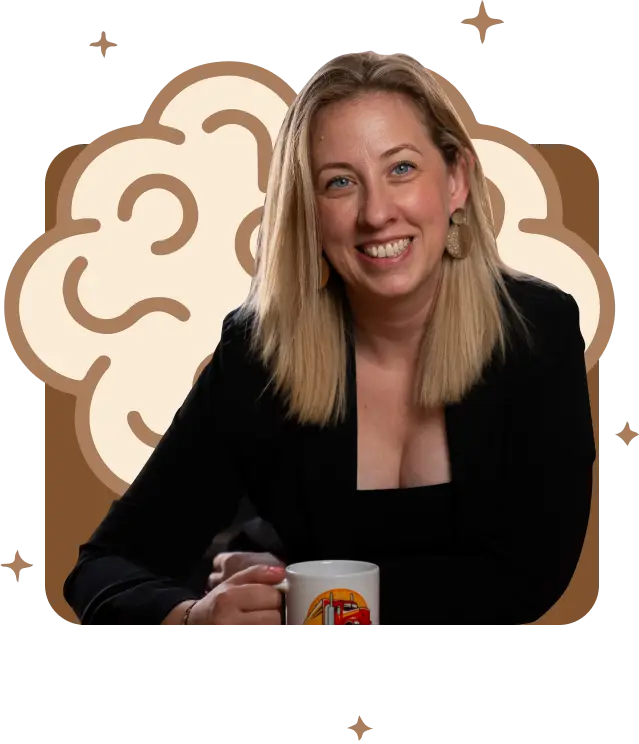
Why Work With Me for ADHD + Autism Therapy?
I’m not only a therapist—I’m also a special education teacher, ADHD Specialist, and project management professional, which means I bring structured, flexible, and brain-based approaches to my work. I understand how to teach, coach, and co-regulate with neurodivergent kids and teens in a way that feels safe and empowering.
I’ve worked with families for over 15 years to reduce meltdowns, improve communication, and support school success—without pushing kids to be “more normal.” My goal is to help them feel understood, confident, and capable, while supporting the entire family system along the way.
Ready to Support Your Child in a Neurodivergent-Affirming Way?
Let’s work together to help your child feel seen, supported, and successful—at home, at school, and in their relationships.
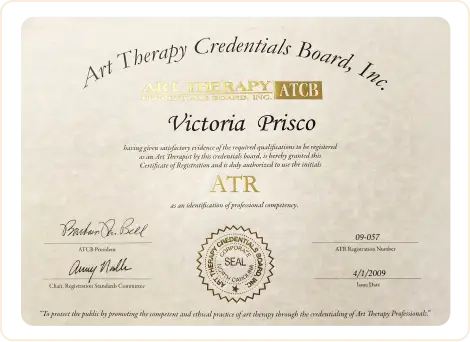

- Master’s of Arts, Creative Arts Therapy
- Master’s of Education, Special Education
- Currently working on PhD
- Licensed Professional Counselor in PA, NV, VA and AZ
- Licensed Mental Health Therapist in FL
- Licensed Creative Arts Therapist in NY
- Internationally registered advanced addiction Therapist
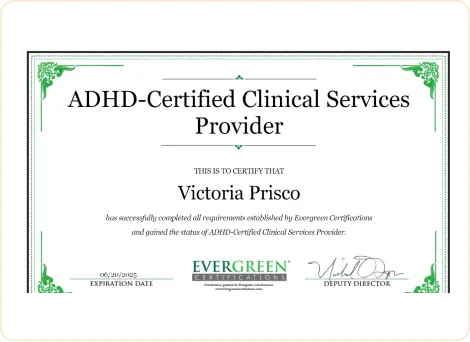
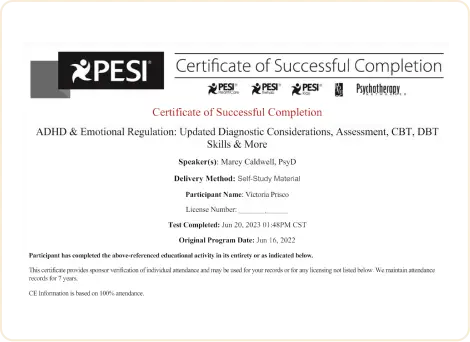

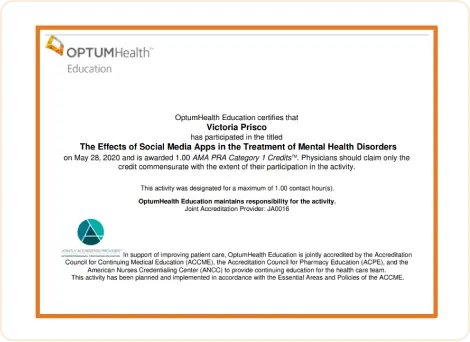

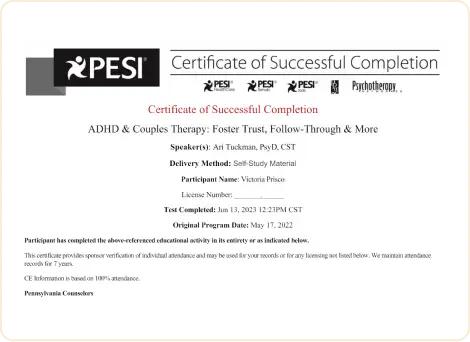
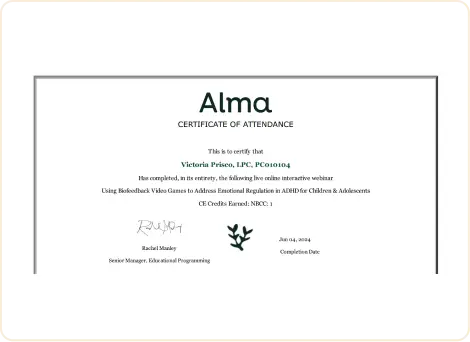
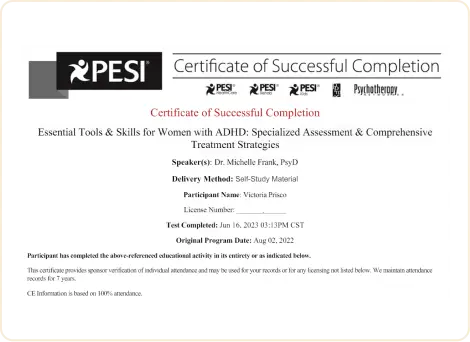



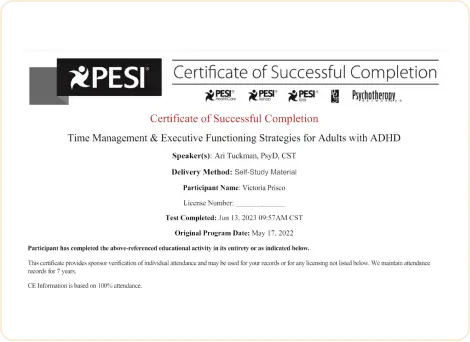
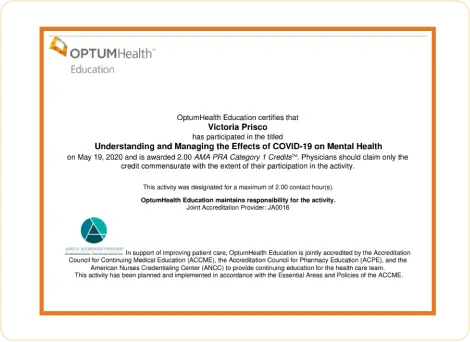
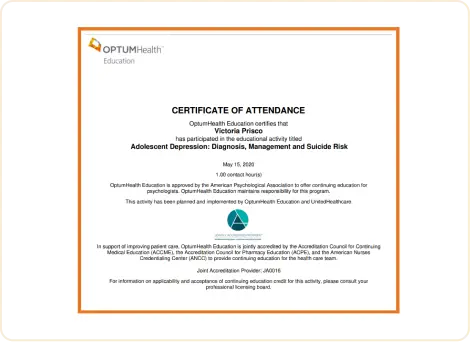
- ADHD Certified Professional (ADHD-CCSP)
- Certified Advanced Addiction Counselor (CAADC)
- Certified Integrative Mental Health Professional (CIMHP)
- Narcissistic Relationships, Emotional Abuse & Gaslighting: Treating and Empowering Survivors of Relational Trauma
- Project Management Professional (PMP)
Trustindex verifies that the original source of the review is Google. Victoria is the most incredible, compassionate, kind, and thorough therapist I’ve ever had. I have been seeing her for almost 4 years and feel really lucky to have found her. I’m 30 years old and struggle with anxiety, a negative mindset, a harsh inner critic, and difficult family/relationship dynamics and Victoria has been instrumental in helping me work through all of those issues and more. She is not just a therapist who sits there silently listening the entire time. She always offers a unique perspective while still remaining personable and relatable. I also leave every session with “homework” so that I am actually taking what we’ve discussed and applying it to my real life through worksheets, journal prompts, videos, podcast recommendations, etc. Victoria always makes me feel accepted, assured, and welcomed during every session, and I highly recommend her to anyone who is looking for a therapist to finally help you through your troubles. Thank you Victoria for helping me change as a person for the better!Trustindex verifies that the original source of the review is Google. I’ve been seeing Victoria for almost a year now, and I’ve noticed significant improvements in myself, my mood, and my mental focus. I came across Victoria while searching for a cognitive behavioral therapy specialist. My goal was to adopt a more constructive approach to situations where my mind tends to overthink them, and to make a conscious effort to be more present in my daily life. Victoria’s approach has been constructive, caring, and helpful, listening to my concerns and providing effective strategies for me to not only deal with my immediate problems, but also a plan for any future situations that may arise. Along with being an effective psychotherapist, Victoria is also very flexible when the occasional emergency comes up, responsive to email, and reliable. Lastly, the remote sessions are very convenient, and no less effective than an in-person session.Trustindex verifies that the original source of the review is Google. My son looks forward to his sessions with Victoria. She has helped him to find confidence in his ability to manage his emotions and be less impulsive. She checks in with me and is collaborative. We appreciate having her in my son's life.Trustindex verifies that the original source of the review is Google. Victoria is a very understanding and encouraging therapist. Her enthusiasm really has the ability to shift my mind set. If I start the session feeling down and discouraged, she helps me see the positives and gives me the small steps I can take to focus on being self encouraging. Victoria is a wonderful therapist, she’s extremely helpful and always so positive and supportive.Trustindex verifies that the original source of the review is Google. My son has participated in the social skills Minecraft group for a few sessions and I recommend it to everyone! Real time application of skills and support is phenomenal. Mrs Victoria is so kind and engaging for updates. Such amazing support as we've navigated a difficult social time. He looks forward to it weekly!Trustindex verifies that the original source of the review is Google. I have worked with Victoria for a year. She is an excellent listener, focuses on you and your goals, and is positive. She has offered useful tools and resources tailored to my needs. I look forward to our visits and I highly recommend her.Trustindex verifies that the original source of the review is Google. I've been seeing Victoria for about a year now and have had a really positive experience. She comes to every session with a positive, supportive, and solutions oriented approach. I always leave feeling like I've gained valuable insights that I'm ready to put into action. Highly recommend working with Victoria and Level up Wellness!Trustindex verifies that the original source of the review is Google. Victoria has been a valuable member of my care team and has enabled me to safely explore my behavior, habits, and mental health. She's provided an objective perspective and has helped me identify actionable things I can do to improve my wellbeing. I highly recommend her!Verified by TrustindexTrustindex verified badge is the Universal Symbol of Trust. Only the greatest companies can get the verified badge who has a review score above 4.5, based on customer reviews over the past 12 months. Read more